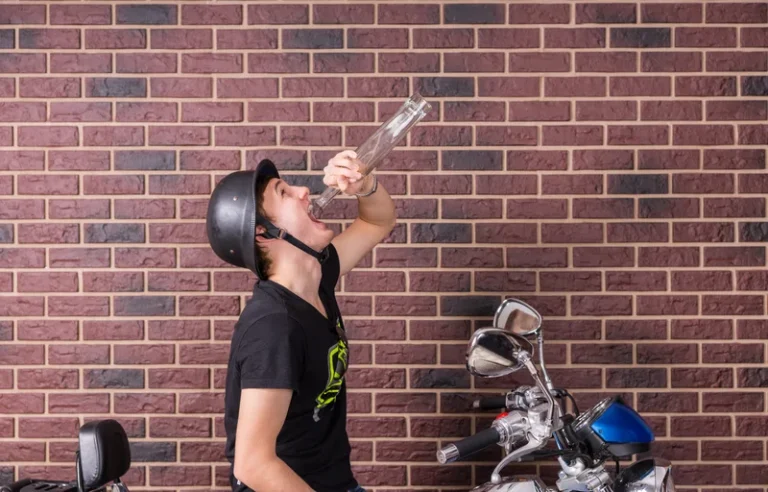
Most people with a seizure disorder (epilepsy) can drink small amounts of alcohol occasionally without experiencing an increase in seizure activity. Small amounts of alcohol do not change the blood levels of anti-seizure drugs. They also do not cause changes in electroencephalographic (EEG) readings (brain activity tracings). The dangerous withdrawal symptoms that are more likely through kindling include seizures, heart problems, and death. If you’ve gone through alcohol or depressant withdrawal in the past, you should seek medical attention before quitting alcohol.
Online Therapy Can Help
Non-benzodiazepine anticonvulsants (NBACs) are increasingly being used both for alcohol withdrawal management and for ongoing outpatient treatment of alcohol dependence, with the goal of either abstinence or harm reduction. This expert narrative review summarizes the scientific basis and clinical evidence supporting the use of NBACs in treating AWS and for reducing harmful drinking patterns. There is less alcohol withdrawal seizure evidence in support of NBAC therapy for AWS, with few placebo-controlled trials. Carbamazepine and gabapentin appear to be the most promising adjunctive treatments for AWS, and they may be useful as monotherapy in select cases, especially in outpatient settings and for the treatment of mild-to-moderate low-risk patients with the AWS. The body of evidence supporting the use of the NBACs for reducing harmful drinking in the outpatient setting is stronger. Topiramate appears to have a robust effect on reducing harmful drinking in alcoholics.

caution when combining phenobarbital and benzodiazepines
- However, our review of evidence from interventional studies performed in the ED does not provide sufficient evidence to recommend routine use of phenobarbital or propofol in ED treatment algorithms.
- They will also typically give you medication to stop a seizure if you are experiencing one.
- Among the seven RCTs, one was at high risk of bias, two had some concerns, and the remainder was at low risk.
- Those who have a history of detoxification are more likely to experience seizures during alcohol withdrawal.
Patients who experience harms from alcohol and other substance use often seek care in the emergency department (ED) 1, 2. In recent years, ED visits related to alcohol in North America have increased significantly 3, 4. In the United States, the rate of acute alcohol-related ED visits increased 40% between 2006 and 2014. Although national-level data are lacking in Canada, a provincial-level analysis in Ontario demonstrated that between 2003 to 2016, the increase in rates of alcohol-related visits was 4.4 times greater than the increase in all-cause ED visits 3. If you have alcohol use disorder and want help, a healthcare provider can guide you to resources and rehabilitation programs to help you quit. It’s difficult to predict who will and who won’t experience alcohol withdrawal — and how severe it will be.
Alcohol Withdrawal and Seizures: Causes, Symptoms, and Prevention
Our facility is conveniently located within the heart of New Jersey, under 20 minutes from Philadelphia. We have a full range of treatment options, including medical detox, inpatient care, partial hospitalization programming, and intensive outpatient services. Preventing alcohol-induced seizures is crucial for managing alcohol withdrawal and ensuring the safety of individuals with a history of excessive alcohol use. Key strategies for prevention include moderation in alcohol consumption and regular medical check-ups. Not all seizures related to alcohol use are due to withdrawal; binge drinking or chronic alcohol consumption can also provoke seizures through metabolic disturbances, such as significantly low blood sugar levels.
- If a patient begins experiencing signs and symptoms of severe withdrawal, including but not limited to seizure, altered mental status, or agitation, they should seek emergency care immediately.
- Evidence-based treatment options for alcohol abuse include behavioral therapies and counseling, FDA-approved medications to reduce alcohol cravings, and support groups like Alcoholics Anonymous that offer 12-step programs.
- While in the hospital, a medical team can monitor any other symptoms you may experience, as well as treat your seizures.
- As our brain adjusts, we may experience mental and emotional symptoms such as anxiety, mood swings, insomnia, confusion, and hallucinations.
Binge Drinking Seizures
Furthermore, our findings contribute more rigorous evidence compared to those previously published in expert opinion articles and narrative reviews. As most included studies were conducted in the United States and Canada, we are confident that our findings are likely generalizable within the North American context. We used the Cochrane risk-of-bias tool for randomized trials Version 2 (RoB 2) to assess the risk of bias in the RCTs included in this study 29. For non-randomized studies, we used the Cochrane risk of bias in non-randomized studies of interventions (ROBINS-I) tool 30. Risk of bias assessments were performed by one trained reviewer (JK) and verified by the principal investigator (JM). The first 50 search results were opened and reviewed for relevant materials.
treatment

Serious concerns about alcohol withdrawal and seizures may arise when people with severe drinking histories suddenly stop or reduce alcohol intake. It is important to know the link between them for early symptoms’ identification and quick access to medical help. Alcohol’s half-life is around four to five hours, which means your body will process the chemical out of your bloodstream within that time frame. After that, many of alcohol’s effects will have faded or will begin to fade. It won’t be long after alcohol reaches its half-life that you start to experience withdrawal symptoms.
How Alcohol Withdrawal Can Cause Seizures
Alcohol withdrawal seizures can occur within drug addiction a few hours or up to72 hoursafter stopping drinking. Our use of rapid review methodology may increase the chance of inaccuracies in our study assessments vis-à-vis a formal systematic review. Nonetheless, we employed a systematic search strategy and our trained reviewers applied rigorous, prespecified criteria for inclusion, extraction, and risk of bias assessments, which strengthen our approach.

Findings suggest that https://ecosoberhouse.com/ they likely can be used as an adjunct therapy for AWS treatment, regardless of severity and risk level at presentation. Both are potential monotherapy agents for patients with mild-to-moderate AWS symptoms that are also at low risk for progressing to severe alcohol withdrawal symptoms or complications. The current literature does not support the use of valproic acid/divalproex as a stand-alone treatment for AWS, though it may have some use as an adjunct.
Seeking help for addiction may seem daunting and possibly even scary, but there are several organizations that can provide support.

We also hand-searched the most recent conference abstracts (2015 to 2020) of the Canadian Society of Addiction Medicine, American Society of Addiction Medicine, Canadian Association of Emergency Physicians, and American College of Emergency Physicians. A professional health sciences librarian (MDW) developed our search strategy. We searched MEDLINE and CENTRAL using concepts emergency department AND alcohol withdrawal AND (drugs OR drug subheadings).


